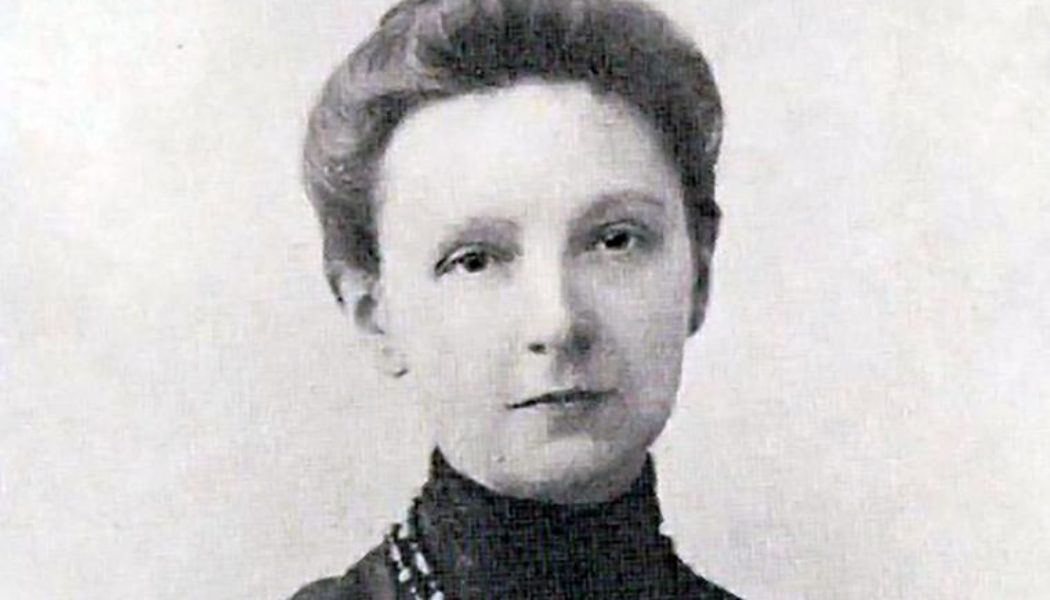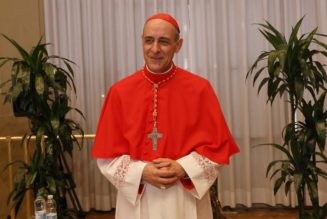
The incredible story of Félix and Élisabeth Leseur is a great testament to the power of sacrificial love and Divine Providence.
Having a loved one who doesn’t believe in God is soul-crushing. Not to be able to share the joy of the Mass with that person or to share anything about the Faith, for that matter, can be incredibly lonely and can bring a person to the brink of despair.
Take heart, though, and never give up praying for your loved one because “for God, all things are possible” (Matthew 19:26).
The incredible story of Félix and Élisabeth Leseur is a great testament to the power of sacrificial love and Divine Providence.
The young French couple were madly in love when they married on July 31, 1889. Both Félix and Élisabeth came from Catholic homes, but Félix had renounced his faith while in medical school — a confession he made to his bride just before taking their vows. Élisabeth loved Félix so much that she resolved to bring him back to Christ. Félix adored Élisabeth and promised himself to free her from her “religious superstitions.”
The Leseurs were intelligent, successful and well-connected. They shared a passion for travel, art and literature. They faced hardships, including infertility and Élisabeth’s chronic illness. Unbeknownst to Félix, though, more painful than her illness was Élisabeth’s spiritual isolation.
She lived a private interior life of prayer and mortification, constantly offering up her sufferings for the conversion of “souls,” especially for her husband’s:
She had to build her married life with what she had and not with what she dreamed of having…She therefore decided to live her marriage fully as the wife of Félix as he was with his qualities, his faults, his atheism, his refusals and his rejections, his mockeries, but also with all the love that he showed her every day. (Salt and Light: The Spiritual Journey of Élisabeth and Félix Leseur, by Bernadette Chovelon)
You see, Élisabeth chose not to try to convert Félix with words. She thought it pointless and realized it would only lead to arguments. Instead, she decided she’d make God known to her husband and other non-believers she loved, by her actions:
Through the serenity and the strength that I want to acquire, I will prove that the Christian life is beautiful and great and that it brings joy with it.
Only after Élisabeth’s death on May 3, 1914, did Félix discover how much his beloved wife sacrificed for him when he read her deepest desires in her secret diary:
We pray, suffer and labor in ignorance of the consequence of our acts and prayers. God makes them serve his supreme plan; gradually they take their effect, winning one soul, then another. They hasten the coming of the Kingdom of God and by the other beings, acts and desires they give birth to, and they will exert an influence that will endure until the end of time. (The Secret Diary of Élisabeth Leseur)
Félix was not only devastated by his wife’s death, but now was ridden with tremendous guilt, having discovered he had caused his wife so much heartache for mocking her faith while she was alive. Félix read and reread Élisabeth’s writings and slowly, he allowed God back into his heart:
It was no longer as before. I was closer to her [Élisabeth] all the same, and without being won over by the faith, I was often troubled by the thought of the inner life. I stiffened then; I wanted to believe myself as much a materialist as before, but my ideas had received a powerful shock and although remaining attached to my irreligious or skeptical friendships, the work of transformation was being done without my knowing it, slowly, often despite myself, even though no one around me could encourage it — quite the contrary.
A few years later, the once boisterous and anti-clerical atheist surrendered his whole life for God’s glory and became a Dominican priest at the age of 62.
He spent the rest of his life spreading his wife’s message of sacrificial love across the globe.
Before his death in 1950, Félix, who became Father Marie-Albert Leseur, worked diligently to champion the cause of his wife’s beatification. Unfortunately, World War II and his declining health interrupted his efforts.
In 1990, the Catholic Church reopened the cause for Élisabeth’s canonization.
Élisabeth lived in a very materialistic society, surrounded by atheists and people who lived for themselves and openly mocked her faith. But she didn’t treat them with contempt. Instead, she chose to love them as they were. She saw each person as God’s creation. She respected their beliefs even if they were different than hers. Élisabeth brought to life Jesus’ words, “that you love one another, even as I have loved you.” (John 13:34)
[embedded content]









